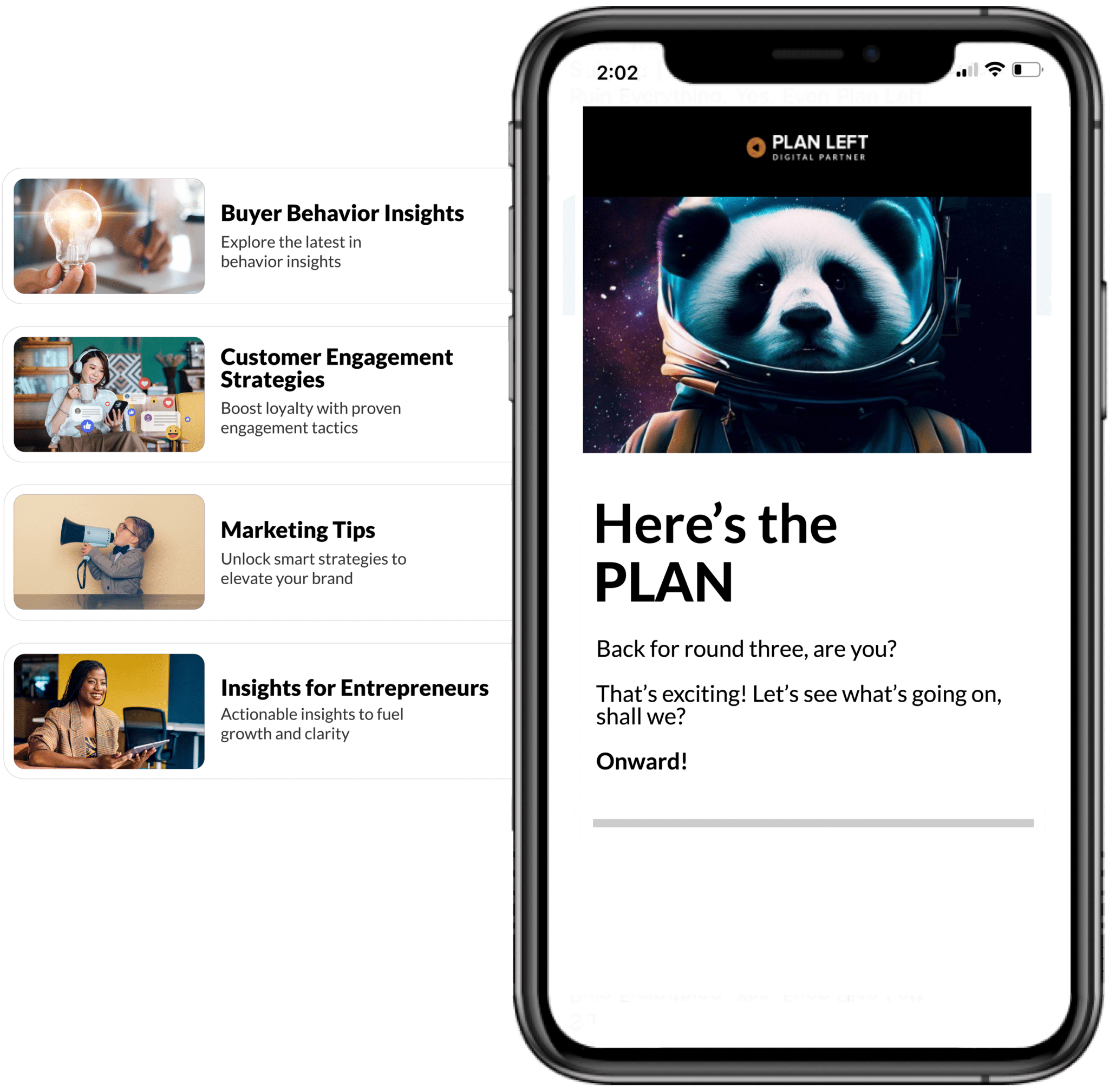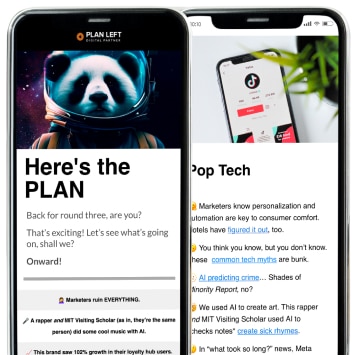Go Vote TN Custom App Updates Exceed Expectations
Plan Left Saved the State of Tennessee Time, Money, and Frustration With Updated Mobile App
Plan Left successfully integrated push notification messaging into an established mobile application, surpassing expectations with enhanced UX/UI design, upgraded content management, and simplified database and content storage.
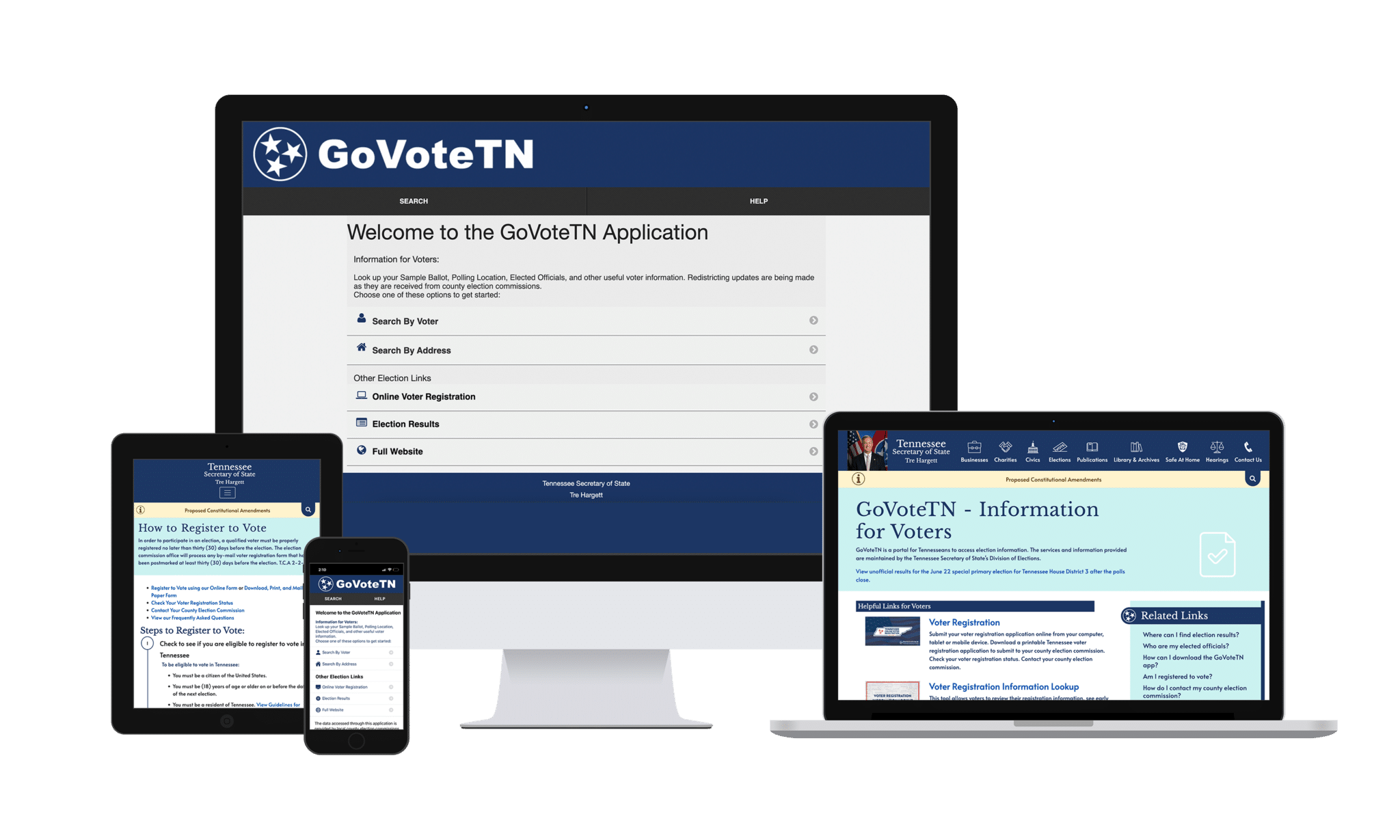
Project Highlights
The Go Vote TN app provided capabilities for discovering polling locations, candidate lists, and other voting-related information, but no push notification abilities.
UI/UX
UPDATED DESIGN
COMPATIBILITY
CROSS-PLATFORM
Before We Started
The Go Vote TN app provided capabilities for discovering polling locations, candidate lists, and other voting-related information, but no push notification abilities.

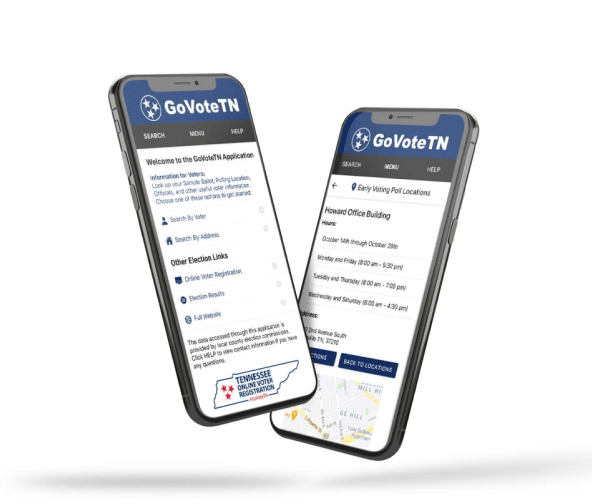
After We Were Done
Because the app was built on an open-source Ionic platform, The State could enjoy cross-platform compatibility and a lower cost of development and ownership.
TNSOS received an updated interface that met modern UI/UX design standards, as well as team augmentation for training, onboarding support, and DevOps assistance for implementation. The standalone Laravel app provided content management capabilities that included user roles and permissions, push notifications, message scheduling, and queue status for content.
This specialized content management system allowed for the creation of a single database to which information in various formats from several databases could be transformed, sanitized, and migrated for ease of access to decades of documents, complete with edits and revision history.

The Problem
TNSOS owned a mobile app built for Apple iOS and Android that allowed users to look up polling locations, candidate lists, and other voting/elections-related information, but that app had no push capabilities. Modification of the app was needed to enable push notifications, allowing messaging capabilities to authorized Elections and Communications users.
Additional challenges presented, including integration of client-provided APIs that required state regulatory and compliance standards.
The Plan
Plan Left offered two plan options, each with four specific components. These components included a mobile application and theme, message delivery, and a messaging interface and platform.
Using a Laravel base, the initial development of the app would be made easier using developer tools which could speed development for cost and time savings.
The developed app would utilize the existing relationship between Google and The State of Tennessee with the message delivery service provided by Google Firebase. This app development could also include a web-facing version built on a Laravel framework.
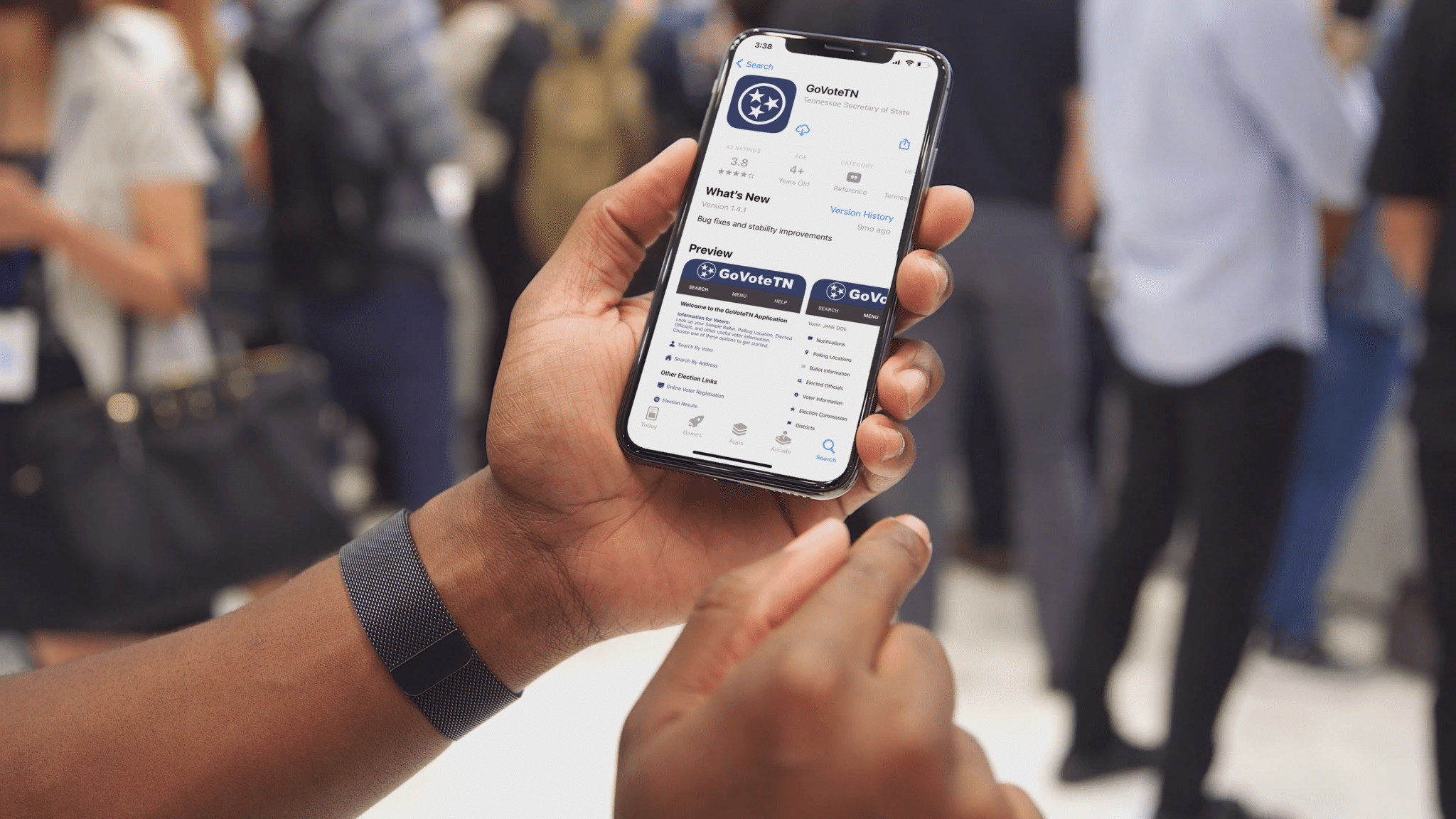
The Results
The updated Go Vote TN app includes push notification capabilities and much more than the Tennessee Secretary of State requested, including team augmentation for training on the new app.
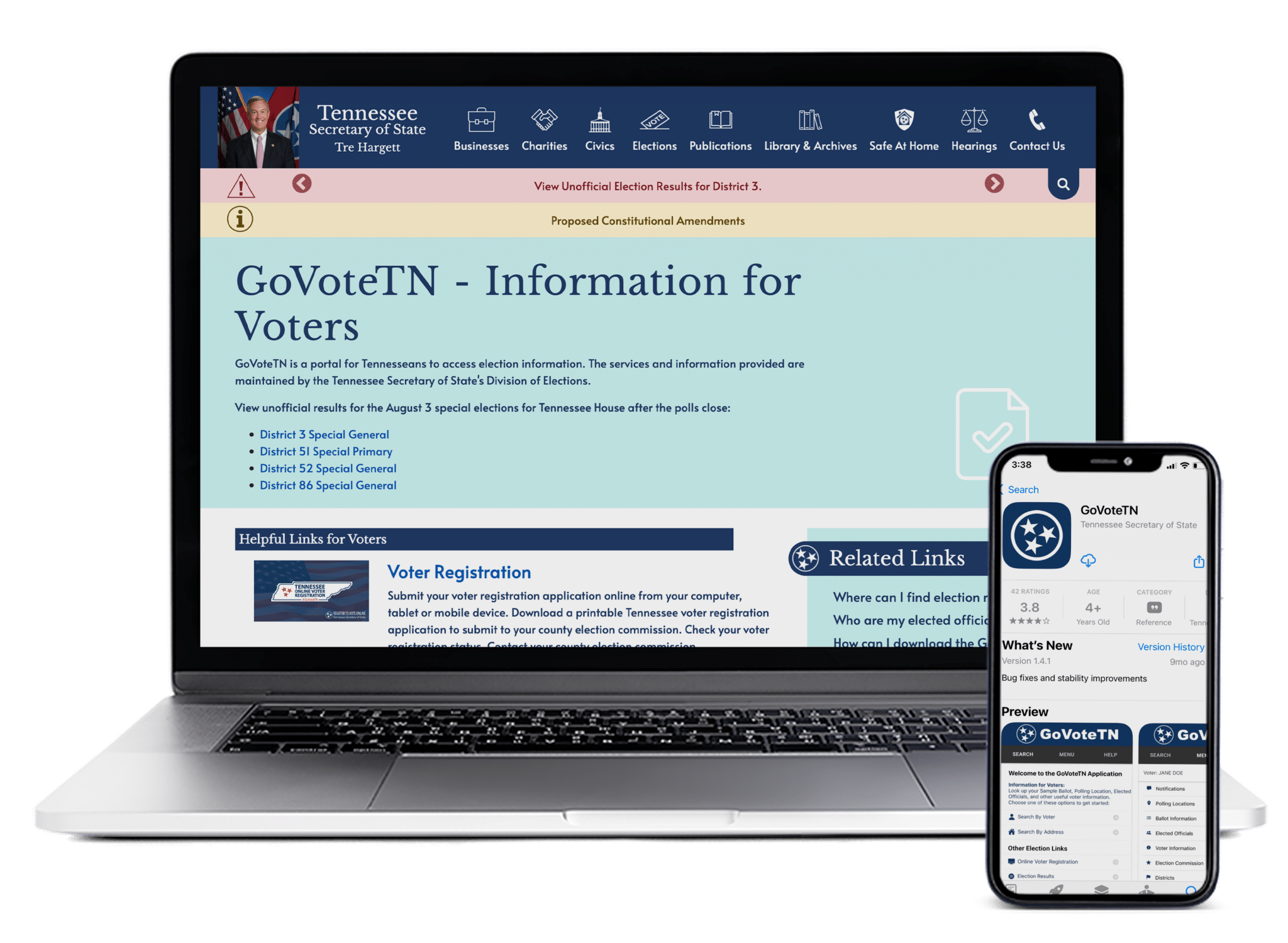
The Plan Left Advantage
Need an App That Exceeds Every Expectation?
What we did with the State of Tennessee’s GoVoteTN App, we can do for you.
Essential Strategies for Entrepreneurs
Get Actionable Business Insights & Marketing Tips
Our newsletter delivers real-world strategies from entrepreneurs who’ve been exactly where you are.
Sign up now for:
- Actionable growth strategies that work
- Insider tactics for attracting top talent
- Real-world case studies from successful founders
- Emerging tech trends that drive innovation
- Pragmatic marketing approaches for visionary leaders
